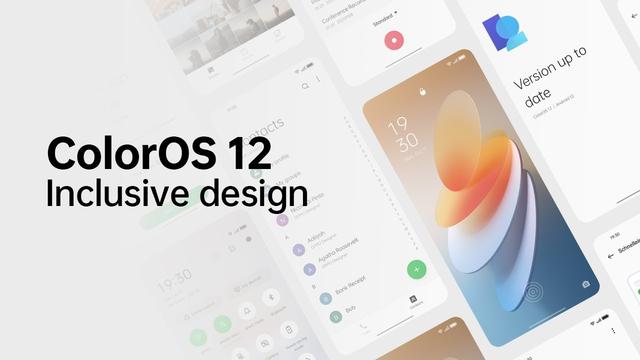talk to OPPO ColorOS design team: a lesson in simplicity
design blurs the boundaries between technology and art atOPPO. launched in october 2021, ColorOS 12 is the new operating system for thesmartphones of the china-based consumer electronics brand. the OPPO design team has refined and polished each detail of its user interface to deliver an intuitive user experience. this is in the mission of enriching our daily lives, aiding well-being and, of course, improving social communication. from concise language to an entourage of accessibility features, every single element of the operating system has been thought-through so that users, just as designboom tested out personally, do not have to.
as well as trialling OPPOColorOS 12, designboom spoke with chris chen, product design director of OPPO ColorOS, and nora joy wilson, design project manager of OPPO ColorOS.
ColorOS 12 homepage: creation tool enables wallpaper, ringtones, icons and more to be customized by users
all images courtesy of OPPO

OPPO coloros designed for the user
‘we put the users first in everything we do; beauty follows functionality in our design. our approach is like marrying the technology to the human rather than vice versa. we look for ways that the design can match the user’s existing habits rather than forcing the user to create a new habit to suit our design aesthetics,’ explains nora joy wilson, design project manager of OPPO ColorOS, to designboom.
the popularity of OPPO is of no surprise then. operating in more than 140 countries and regions, the smart device brand has gained a following of over 460 million users since launching its first mobile phone – smiley face – in 2008. ever since, the company has been on a relentless pursuit for the perfect synergy of aesthetic satisfaction and innovative technology. this mission goes beyond the beauty of the physical object to the richly-enabling of the ColorOS operating system.
inclusive design language: a less-is-more approach refines a refined, highly intuitive user interface design
ColorOS is a highly customized, intelligent and richly-designed android-based mobile operating system. by improving user efficiency, ColorOS firstly aims to facilitate the easy completion of tasks. secondly, it must be convenient, designed to be both simple and subtle, to serve the core needs of target users. lastly, the design needs to offer a unified yet individual experience for its global following.
‘ColorOS has more than 460 million users worldwide, which is a very, very large number. the demographic is so wide reaching, how can we cover this many people? it is a very big challenge but one that our designers are always thinking about. we need to understand and design for users in groups,’ questions chris chen, product design director of OPPO ColorOS, in the interview with designboom.
the inclusive design of ColorOS 12
the core design concept of coloros – infinite
to begin, the foundation of ColorOS starts with the ever-evolving infinite design concept, which lays both the aesthetic and functional design of the system. from iteration 1.0 through the latest 4.0, the design concept encompasses the introduction of infinite screen – a concise design to work full-screen on smartphones – a lighter and more efficient design language, personalization abilities through ‘creation’, and now the focus on inclusivity.
‘the concept of infinite design firstly follows the mantra that less is more. in chinese painting and calligraphy,leaving blank space is a technique that pays attention to composition so that, when structure is added, the artwork changes to show greater contrast between shades. this influenced our design interface. we want less content to ensure our design only shows the key, most important things,’ explains chris. ‘secondly, the concept focuses on the user’s feelings. we believe scientific and technological progress must ultimately serve people. we pay attention to the real user experience on issues such as users’ feelings while using the phone.without being overly customized as to lose its core essence, the design should feel personal to as many users as possible.’
the result is modern, geometric and elegant: the framework establishes regularity, frosted glass texture adds dimension, and light and shadow play creates depth. it is rich in content yet clean in appearance to give space to highlight key functions when the user needs. with the addition of more personalization options and inclusive features, the design amazes in its simplicity as it converts the belief that product iterations should be more complex. ColorOS 12 is the sharpest-ever interface design to date.
